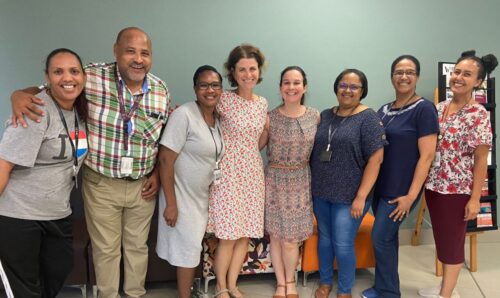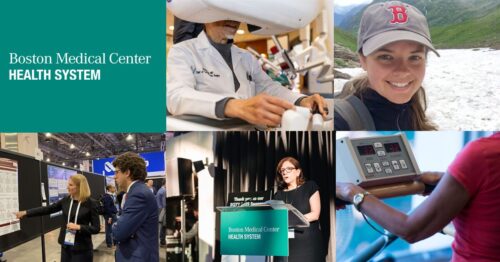Tampon Shortage Spotlights the Vital Need for Menstrual Equity Now
August 30, 2022
By Isabella Bellini, By Caitlin White

Stefani Reynolds, Getty Images
Period poverty is a global issue, and it particularly affects people experiencing homelessness, who face additional stigma.
More than 34 million Americans use menstrual products and 70% of that population uses tampons. Now, amid the continuing global supply chain issues, the country has been facing a tampon shortage late spring — which has been widely ignored by media. A dominating fear is that with tampons out of stock for an extended period of time, people will purchase alternatives like pads and adult diapers, and these items will not only be dwindling from shelves but spiking in price. These products are not a luxury but a necessity, and they are increasingly becoming inaccessible to all Americans — but particularly some of our most vulnerable individuals. This tampon shortage only spotlights the existing, vital need for menstrual equity.
Though the definition of menstrual equity is evolving and growing, in its current form it means ensuring the affordability, accessibility, and safety of menstrual products, as well as education and reproductive care. It’s intertwined with reducing stigma around periods.
The cost of period products
During the average 40-year span that a person typically spends menstruating, an individual uses more than 9,000 tampons: 1 every 6 hours, or 20 for every average 5-day cycle. And those with heavier flows typically have to change their tampons more frequently to avoid leaking. Then there’s the financial impact. Over the course of their menstruating years, an individual can expect to spend close to $2,000 on tampons, $4,500 on pads, and more than $2,000 for every pair of underwear ruined — and prices are rising. Between the cost and the amount of products and time needed for merely one cycle, the menstrual equity gap only widens.
“A tampon shortage can be terrifying, especially for patients who have a heavy flow and double up with a tampon and a pad,” says Kate White, MD, FACOG, a gynecologist at Boston Medical Center. “This [situation] means a lot more frequent changing, which usually requires greater access to bathrooms. It makes travel and commuting difficult and requires more public bathrooms and sanitary spaces, as well as break time that some occupations may not permit.”
White adds, comparing menstrual products to another essential home and hygiene product: “It’s like toilet paper; it’s not a luxury at all.”
Accessing period products for people experiencing homelessness
The current tampon shortage highlights an already existing gap in access to menstrual products for people experiencing homelessness or who have unstable housing. In addition to the prohibitive costs, it is difficult to obtain menstrual products, find privacy to change those products, and access laundry or cleaning facilities for non-disposable, longer-term alternatives, such as a menstrual cup or period underwear.
This can lead to further problems, such as overusing a single pad or tampon or DIY-ing an alternative, which can lead to toxic shock syndrome, yeast or urinary tract infections, bacterial vaginosis, or, specifically with DIY tampons, exposing chemicals to your bloodstream.
“Overall, there is a major impact on dignity,” says White. “For anyone, but this is especially true for people experiencing homelessness, who have some of the most difficulty accessing any menstrual sanitary products.”
Ingrid Rudie, NP, a nurse practitioner with Healthcare Without Walls who works at the Wellness Center at Rosie’s Place, a multi-service women’s shelter in Boston, has direct, on-the-ground experience with the obstacles her guests face. She tells HealthCity that many of her guests come in specifically seeking menstrual supplies and rely on Rosie’s Place as the source of those supplies. In her experience, she says, women experiencing homelessness mostly request pads and adult diapers as reusable products, such as menstrual cups and period underwear, are more complicated and difficult to maintain without a safe space to clean and/or launder.
Periods and homelessness: Intersecting stigmas
According to International Planned Parenthood Foundation (IPPF), not only is menstrual health education lacking globally, but in places where it does exist, it often is part of curriculum after a young person has already had their first period.
“For all people, all over — even in 2022, even here in Massachusetts — there is no good education on what is to be expected of menstruation and what is classified as ‘normal,'” says White. The gynecologist reflected on talking with patients who “quietly suffer” with very painful and heavy periods, as well as educating patients on vaginal discharge around periods after many worried about sexually transmitted infections, for example.
Ideally, no one should have to designate themselves as ‘poor’ or ‘needy’ or ‘homeless’ to be able to get necessary period products.
IPFF calls this dearth of education “a core challenge in tackling period stigma.”
Period poverty, or an inability to access safe menstrual products, has a direct impact on shame and stigma, access to opportunities because of misconceptions that people who menstruate have diminished capacities, health and safety, and, in some cultures, exclusion from public life, according to the United Nations Population Fund. Menstruation globally, including in even the most developed centers of the U.S., is often seen as “dirty.” In just one example, a photo poet Rupi Kaur posted to Instagram in 2015 that showed a period blood stain on her pants was removed twice from the platform for violating its community guidelines.
For people with unstable housing, this period stigma is only amplified when intersected with the stigma of homelessness. There is myriad research and evidence showing that people who experience homelessness live with shame and guilt and fear seeking assistance due to discrimination. Rudie hopes that period and menstrual equity will remove the additional burden of accessing menstrual products from her guests.
“There are good resources to get menstrual products in spaces for those who menstruate, but this requires people to go into a shelter, out of their way, and ask for them,” Rudie says. “There are a lot of people who don’t feel comfortable accessing these resources. Ideally, no one should have to designate themselves as ‘poor’ or ‘needy’ or ‘homeless’ to be able to get necessary period products.”


